LightRay! Young African Women in Media Leadership series: Meet Elizabeth Osayande
Elizabeth Osayande is bold. She takes on ideas that are five times her size and runs with it. A Freelance Journalist with close to nine years in the media space, her moniker, Iyaloja, as she covers the education beat with the Vanguard Newspaper Limited sticks on her like cheese on pizza.
On the record, she has successfully mentored eight interns. She is the founder of Freelancers Network, FFN formerly known as Female Freelancers Federation – a platform that sees to the uplifting of Freelancers especially women, via collaboration, networking, and providing valuable support for one another. The platform also organises monthly media training where veterans come to train and share their experiences. To date, the platform have successfully trained over 200 freelancers including male and female.
The door is open for you to enjoy this convo with us. Come on right in.
It’s such a pleasure having you here on our women in leadership series, Elizabeth. Let’s take a deep dive. What role has media in your country played in the area of improved press freedom, good governance and empowering more citizens engagement in holding government, themselves, and public office holders more accountable?
The media in my country play crucial role in the democracy, and citizens’ participation through various ways. Chief among them are via editorial, polls, and direct engagement with office holders.
What areas does the media within your state and in your country need to start doing differently?
There are several areas the media need to improve on: the over-reliance on advertisement needs to be reduced as this affects editorial freedom of the media. There is need for there to be an improvement on the salary and other renumeration of staff who work for them. Investment on skills development of their staff can not be left out. The media in Nigeria should work more on embracing technology, and stop being overtly skeptical of its dynamics.
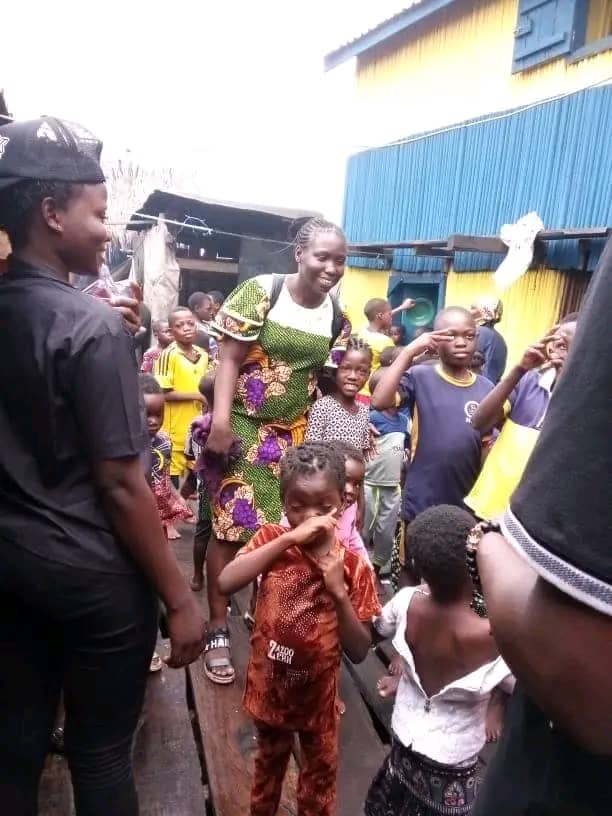
The digital space is the new currency for the media these days, how important is this shift at this time in your career? And why do you think tech, AI, and digital skills are important for a journalist?
The digital space has brought innovation and dynamism into the media operation. At a time, a journalist is expected to be a jack of all trade, and the usefulness of AI and digital tools and skills can not be overemphasized. Digital skills have continued to assist me in the improvement of my craft as a journalist.
If you’ve been working in the media and development space, was this a conscious decision? Or what led you to choose to work in that space?
I have always loved the media. This passion was ignited in me during my secondary school days when I got actively involved in debating and speaking engagements. The passion was further fueled as I often read from the Punch Newspaper my neighbour used to buy.
What more do you think the media and development space can do more or gaps that you’ve identified need to be closed?
There should be consistent effort in bridging the gender gap in the media. More women who are competent should be encouraged to take leadership positions.
When was the first time you knew journalism was going to be your passion and career?
An encounter in my secondary school days jolted me to realise that I have got the skills of a speaker, and a journalist. During my SS, while I was in science class at the time, our then Principal was been transferred to another school. Imagine the secenario: all the students in Art department who were called upon to do a valedictory speech, couldn’t do so. So, I who was from the science class volunteered to the do it. I told my teachers I needed some time to practice. Guess what, after some time practicing, I did the presentation, and got a standing ovation. That day I left Science, and opted for Art. The rest, as they say, is history.
At what point did you feel your career was no longer just a job you showed up to? How did you pivot or even change the course of your career?
When I knew the power of writing can do. Journalism to me is a passion, and a hobby I can’t get tired of.
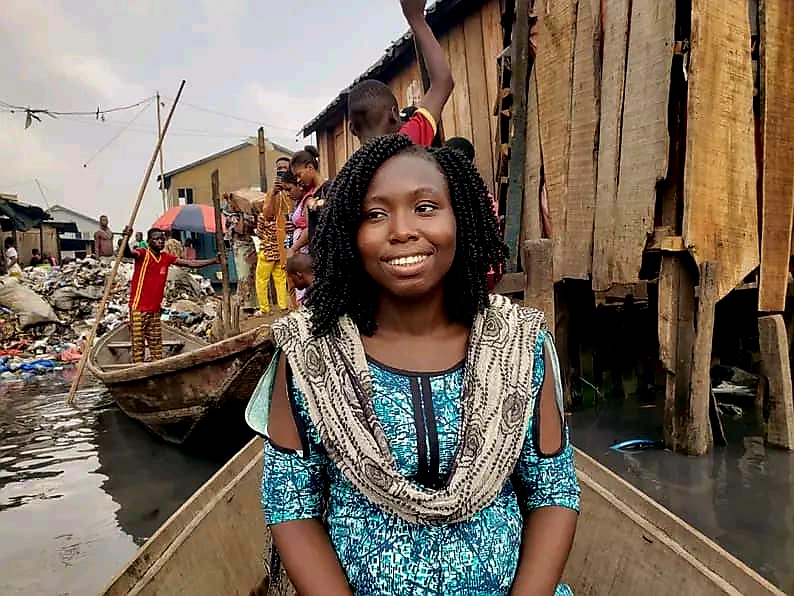
Elizabeth Osayande during her visit to Makoko, 2022.
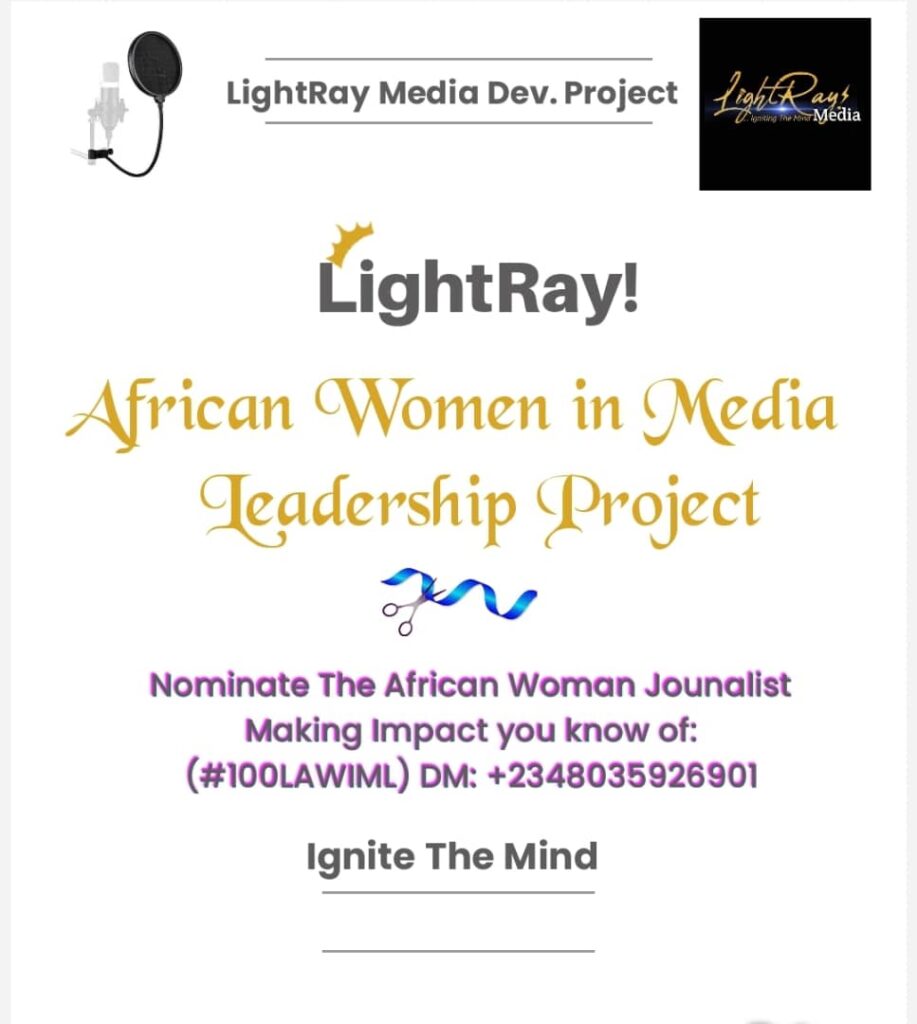
What were some of the struggles for you in the early stages of your career, and how did you overcome them?
One of the many struggles I had then was getting mentors. Not that I don’t have people who look out for my progress, but someone whom I could run to at every stage was not there at the time. To address this, I went out of my way to seek assistance from those who have more experience than I did.
Another challenge was trying to have a story featured once in a week on the Education page assigned to me, which comes out on Thursdays. To overcome this, I began meeting editors asking to be sent on assignments. I remembered one of my boss complaining by asking: “What beat are you writing for now?” I had to ask others in the office if what I was doing was bad. And they answered, no. Their encouraging response fueled my desire to start writing for different beats. Today, there is no beat you give me I can’t write on.
Despite this, I do struggle with people coming to terms with my stature, and the work I do. I am not on the big side. I have had several nasty but hilarious experiences. I once had to interview a prominent Vice-Chancellor’s wife in one of the institutions in Lagos. I went to her office, and she was not around. When she came in, I greeted her, and she responded nonchalantly. However, when the secretary told her the Vanguard lady is here. She said Oh, the journalist, please ask her to come in. You could imagine when I came in, before I could introduce myself, she was apologising.
Here’s another interesting one. Earlier this year, someone called me to come cover an event. And we agreed on the terms of my coming. Only for me to get there, the first question he asked was: “Did Ms. Elizabeth send you?” I just laughted. It was a colleague from Guardian who told him I was her senior colleague. That’s how I overcome the above challenge. I laugh, do a very good job, which will make people recommend me again.
What media channels or platforms have you worked with in the course of your career?
I have always being a print gal. However, I am exploring the online space.
When you make a comparison between radio and TV in terms of setup, audience, content, and distribution, ROI, format, etc, what are the similarities and areas of divergence?
The similarity is that good content makes any media to stand out. Digitalisation is the convergence.
Having come this far in your career, do you still have any current challenges you’re trying to overcome?
My number one challenge is writing news story as I dislike deadlines. I would say though, I prefer features.
What are some of the barriers you think has prevented you from hitting the career target you’ve set for yourself?
Lack of enough mentorship and incentives.
How do you plan to overcome them? Why is it important for you to overcome them?
The platform I formed with some great minds, the Female Freelancers Network, FFN, formerly Female Freelancers Federation, FFF, I believe is able to address the challenges of lack of mentorship and incentive in the media, especially for female journalists. I believe more women would be encouraged into the media if they have mentors, and are encouraged in many ways such as adequate provisions for antenatal. Also, exposure to more training opportunities should be given to women, and their protection from harrasment should be looked into, seriously.
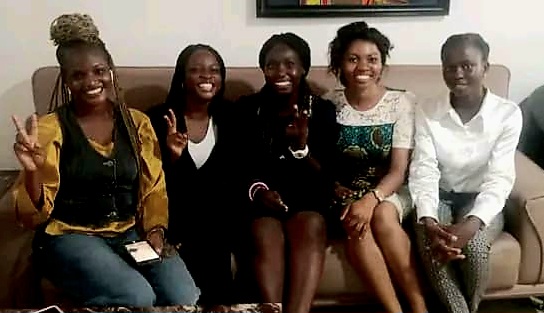
Elizabeth Osayande with her mentees. From right to left: Blessing Lawal, and far left, Chioma Eze at the International Women’s day, hosted by Vanguard Media Limited.
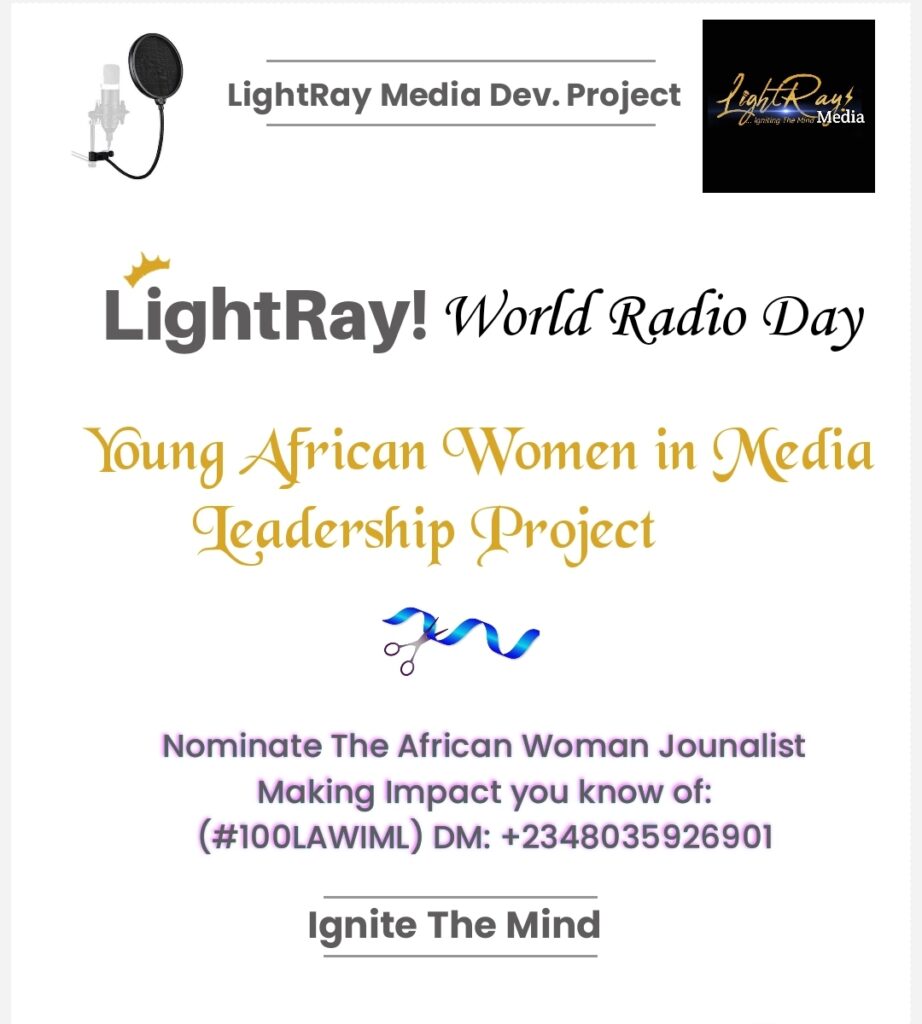
What are some of the stories or projects you’ve done that was the most impacful in the course of your career?
Writing for marginalised communities is a soft spot for me. Spotlighting stories on youths doing great is a passion I hold dear. However, the stories I did in Igbo-Alejo are reports I am proud of. I wrote of a commissioned school project that ought to have taken six months to complete, yet after two years, nothing was done. The children there were learning in the broken-down dilapidated classrooms. Two months after my story, the project for a new school building commenced and was completed and furnished. Today the children have relocated to a new classroom.
What career projection are you setting up for yourself that you intend to meet up?
I intend to be a Development Communication Specialist. This is because communication is dynamic, and reaching my target audience, those in underserved communities, requires I learn the rudiments of communication development.
What training programmes or short courses have you attended, which you applied on the job that made the most impact for you?
I have attended programmes that have had significant impact on the work I do. This is because every training ignited in me a different passion. However, the trainings I attended last year, 2023, had the most impact. One of such was the African Fellowship for Young Media Practitioners Women in Journalism Fellowship. I was one of the 25 women out of 700 applications that got selected across Africa. That training pushed me to be better. The facilitators, especially, Mrs Bimbo Oloyede, Mrs Stella Dim-Jacob, among others, I learned from their support and mentorship that there is no barrier for women to strive.
What suggestions will you give media owners or heads of media business to help boost morale, effectiveness, and reduce toxicity in the workplace?
Owners of media should make the working environment be people-centred. Having respect for one’s staff is crucial. Most heads of media feel since they pay the staff, they own the staff. They forget that every media house is run by the staff.
If you were to reimagine your career, what would you do differently, starting today?
I would love to be a media trainer. I am already doing so, though. What I hope to do more is to improve on that skill.
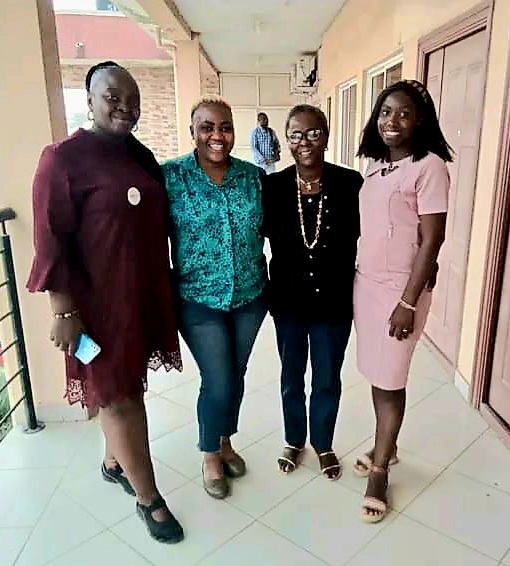
Meet the beautiful and bold Female Freelancers Federation of Nigeria (FFN) Team at RUDN University Short Course Scholarship. From left to right: Princess Adeola Ejiwunmi, Theresa Moses, Ms Joke Kujenya and Elizabeth Osayande, founder, FFN.

How and what can women in media begin to do differently and better to hold their own space within the media industry?
Get the required certificate, experience, and a build a great social capital. Social capital plays a crucial role.
Tell us about some of your accomplishments that make you proud of yourself and continue to inspire you to do more?
Getting an international award. I was named one of the Young Innovative African, and got presented with an Award by the International Internship University, IIU.
What tips in personal development, career pursuit, network strategies, and wealth creation would you advise other women in media, including men, to tap into?
The power of networking cannot be overemphasized. Women should collaborate to achieve better results. Above all, self improvement and continous learning are really important for women to break the ceiling.
How do you balance your personal life, work, and family expectations? Which aspects give you the most challenges, and how were you able to overcome them?
My Spouse, my father and some special acquaintances are my balance. As a young journalist and a Freelancer for that matter, I do have to work above the bar to stand tall. Coupled with the demands of raising a young family, I most times break down. Whenever this happens, my spouse comes to the rescue. He is very supportive I must confess. My Dad motivates and I have a few l friends who also act as support system for me.
Tell us something about the media industry you would like to see change for the better? And why is this change important?
Renumeration of media professionals is very poor. And those that pay average salaries subject their staff to hell. As such, duties and terms of engagement between an employer and an employee should be spelt out. In addition, this contract should not be bridged. Again, the question of who protects the media that protects everyone should be answered.
In the next 3-5 years, where do you see yourself?
In the UN.

How do you think African media can up its ante to compete more favourable with international media organisations?
International collaboration, and exchange programmes like what the US Consulate is doing will go a long way in meeting and competing, globally.
In your years on the job, have you ever experienced burnout, mental fatigue, or mental health crisis? How did you handle it? How can women and men in the media reduce burnout, mental health breakdown, or prevent it?
Yes. Having a strong support system like I had mentioned above is key. Media people should take things one at a time. I am speaking to myself, too (we both laugh).
Let’s talk about online harrasment… Have you experienced it in any form? Or any other threats on the job? How did you deal with it? What steps can women in media take to prevent or deal with online harrasment, etc?
I have not really experienced it. However, women in media should be mindful of their conduct online by being their own first gatekeeper. Sometimes, I feel tempted to post something online that a random person may post and would not raise a dust. But if I post such, such post may have a different meaning. So, I am conscious of what I post most times. Again, in the words of one of my mentors, Dr. Suraj Olunifesi, we should be physically, morally, and emotionally sound to withstand online bullying. Sanctions should be meted out to people who instigate cyberbullying.
If you were to suggest women, indeed journalists in general, can up their ante on online security and how women deal with online harrasment, what tips would you give?
Protection of journalists should be sacrosanct. Some media house do not set boundaries for their staff.
What are some common mistakes you have observed journalist make in the course of their career? And why do you think this happens?
Most journalists especially women live their active life for journalism alone. This shouldn’t mean one should not put in their best, however, we should have life outside of what we do.
How do you chill, relax, while giving attention to your wellbeing?
Most times I watch Nigerian movies. And I make long calls to my loved ones when I’m not with them.
Talking about life skills, what support and other strategies would you recommend for women to break the class ceiling into the management cadre in the newsroom and stay relevant?
Women in media should have a side hustle. Be very good at what you do, build your social character, be humble and loyal. Then leave the rest to God.
What tips would you give women on how to navigate the office politics in a male dominated environment where, for example, bias about women in top positions is seen by some men as emasculating?
Join a political structure, and be the difference.





Comments